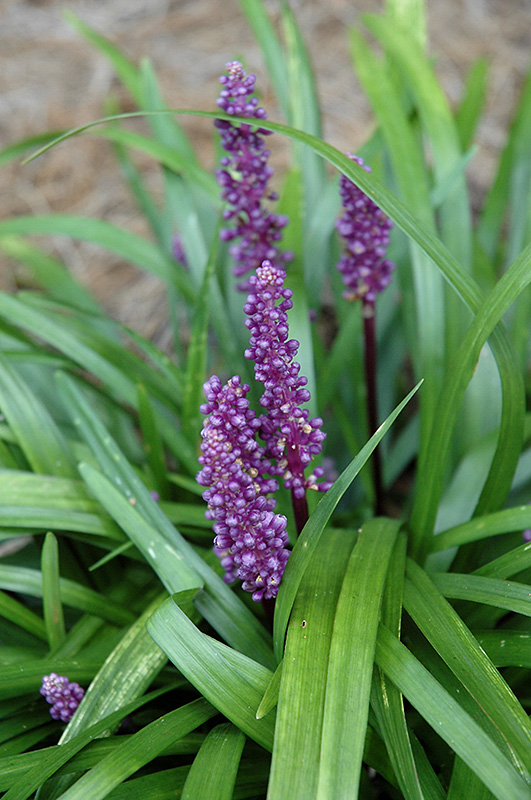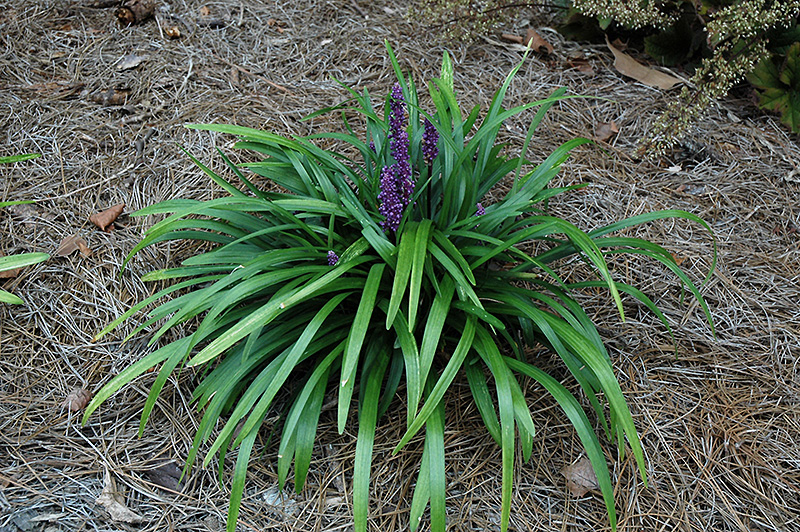Royal Purple Lily Turf
Liriope muscari 'Royal Purple'
Height: 18 inches
Spread: 24 inches
Sunlight:
![]()
![]()
Hardiness Zone: 4
Other Names: Border Grass, Lilyturf
Description:
A tufted grass like perennial that features a clump of arching, glossy, dark green leaves; features a beautiful display of deep purple flower spikes; best used as an edging plant or massed as a groundcover.
Ornamental Features
Royal Purple Lily Turf features dainty spikes of deep purple flowers with blue overtones rising above the foliage in late summer. Its attractive glossy grassy leaves remain dark green in color throughout the season. It features an abundance of magnificent black berries in early fall.
Landscape Attributes
Royal Purple Lily Turf is a dense herbaceous perennial with a ground-hugging habit of growth. Its medium texture blends into the garden, but can always be balanced by a couple of finer or coarser plants for an effective composition.
This is a relatively low maintenance plant, and is best cleaned up in early spring before it resumes active growth for the season. It has no significant negative characteristics.
Royal Purple Lily Turf is recommended for the following landscape applications;
- Mass Planting
- Border Edging
- General Garden Use
- Groundcover
Planting & Growing
Royal Purple Lily Turf will grow to be about 18 inches tall at maturity, with a spread of 24 inches. Its foliage tends to remain dense right to the ground, not requiring facer plants in front. It grows at a fast rate, and under ideal conditions can be expected to live for approximately 10 years. As an herbaceous perennial, this plant will usually die back to the crown each winter, and will regrow from the base each spring. Be careful not to disturb the crown in late winter when it may not be readily seen!
This plant does best in partial shade to full shade. Keep it well away from hot, dry locations that receive direct afternoon sun or which get reflected sunlight, such as against the south side of a white wall. It does best in average to evenly moist conditions, but will not tolerate standing water. It may require supplemental watering during periods of drought or extended heat. It is not particular as to soil type or pH. It is somewhat tolerant of urban pollution. Consider applying a thick mulch around the root zone in both summer and winter to conserve soil moisture and protect it in exposed locations or colder microclimates. This is a selected variety of a species not originally from North America. It can be propagated by division; however, as a cultivated variety, be aware that it may be subject to certain restrictions or prohibitions on propagation.


